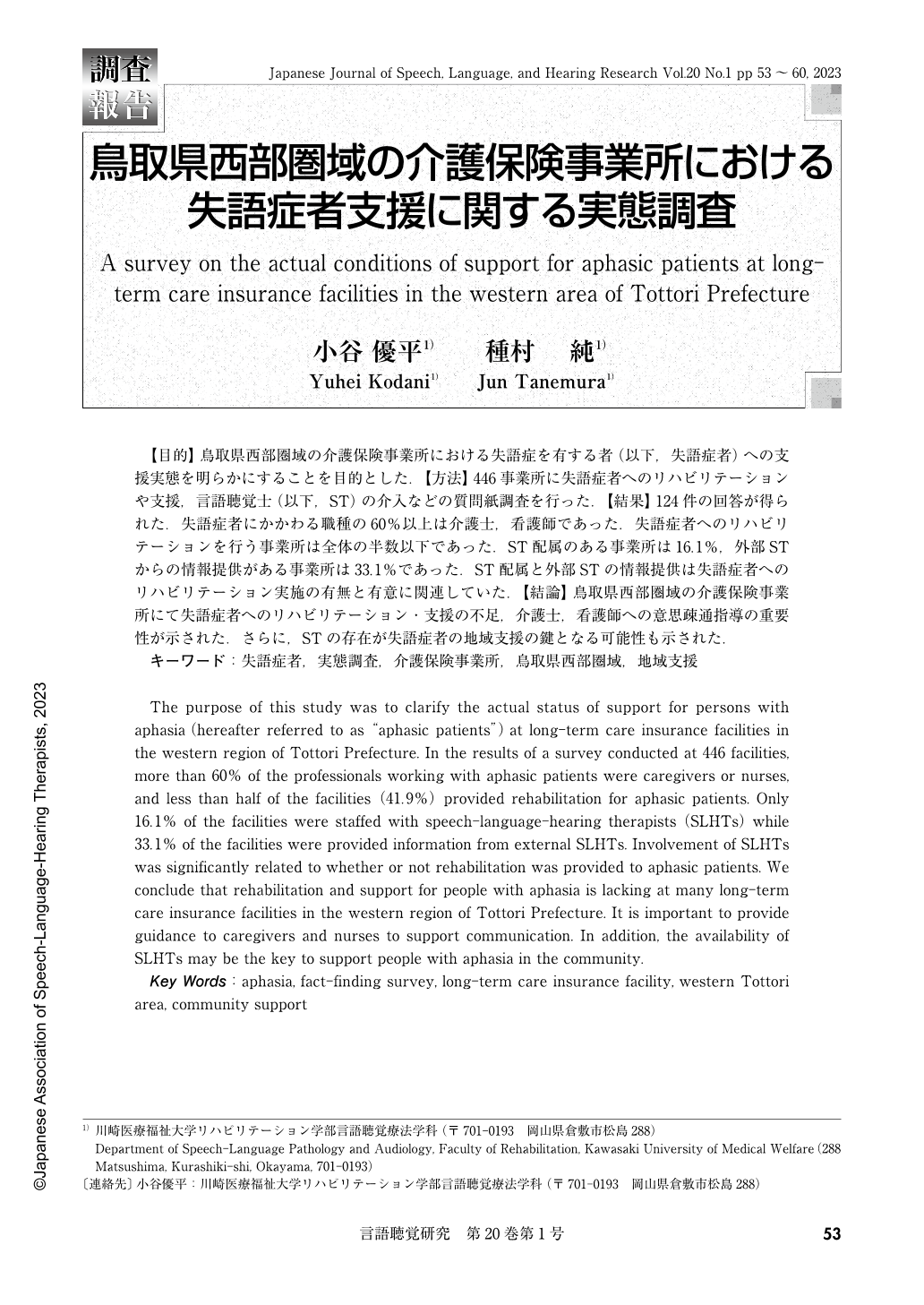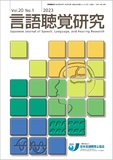Japanese
English
- 有料閲覧
- Abstract 文献概要
- 1ページ目 Look Inside
- 参考文献 Reference
【目的】鳥取県西部圏域の介護保険事業所における失語症を有する者(以下,失語症者)への支援実態を明らかにすることを目的とした.【方法】446事業所に失語症者へのリハビリテーションや支援,言語聴覚士(以下,ST)の介入などの質問紙調査を行った.【結果】124件の回答が得られた.失語症者にかかわる職種の60%以上は介護士,看護師であった.失語症者へのリハビリテーションを行う事業所は全体の半数以下であった.ST配属のある事業所は16.1%,外部STからの情報提供がある事業所は33.1%であった.ST配属と外部STの情報提供は失語症者へのリハビリテーション実施の有無と有意に関連していた.【結論】鳥取県西部圏域の介護保険事業所にて失語症者へのリハビリテーション・支援の不足,介護士,看護師への意思疎通指導の重要性が示された.さらに,STの存在が失語症者の地域支援の鍵となる可能性も示された.
The purpose of this study was to clarify the actual status of support for persons with aphasia (hereafter referred to as “aphasic patients") at long-term care insurance facilities in the western region of Tottori Prefecture. In the results of a survey conducted at 446 facilities, more than 60% of the professionals working with aphasic patients were caregivers or nurses, and less than half of the facilities (41.9%) provided rehabilitation for aphasic patients. Only 16.1% of the facilities were staffed with speech-language-hearing therapists (SLHTs) while 33.1% of the facilities were provided information from external SLHTs. Involvement of SLHTs was significantly related to whether or not rehabilitation was provided to aphasic patients. We conclude that rehabilitation and support for people with aphasia is lacking at many long-term care insurance facilities in the western region of Tottori Prefecture. It is important to provide guidance to caregivers and nurses to support communication. In addition, the availability of SLHTs may be the key to support people with aphasia in the community.

Copyright © 2023, Japanese Association of Speech-Language-Hearing Therapists. All rights reserved.


